Nurturing early career scientists: 20 years of undergraduate industrial placements at BGS
Michael Watts, BGS Head of Inorganic Chemistry, and previous placement students reflect on their experiences working at BGS’s Inorganic Geochemistry Facility over the past 20 years.
28/09/2023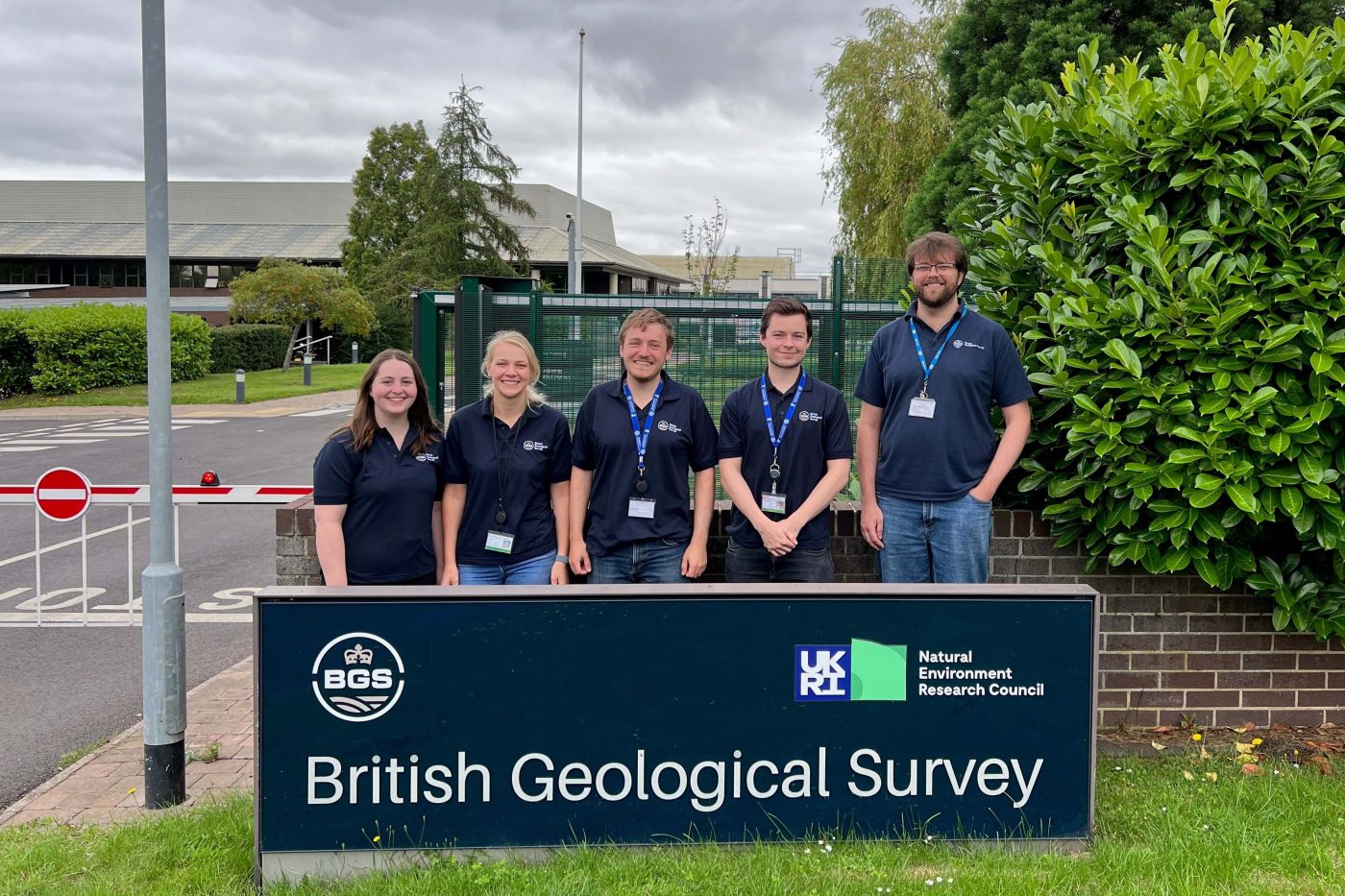
The summer of 2023 saw the completion of the twentieth cohort of undergraduate industrial placements within the Inorganic Geochemistry Facility at BGS. These students undertake a twelve-month placement at BGS as paid members of the team, typically during the third year of a four-year undergraduate chemistry degree. The students largely originate from the University of Surrey, where an extensive programme set up by Prof Neil Ward comprises industrial placement experience with key sectors in the UK and around the world, with the goal of improving the employability of graduates. Overall, we have employed thirty-six students at BGS through this scheme since 2003, with several also coming from the universities of Nottingham, Waikato (New Zealand) and Adelaide (Australia).
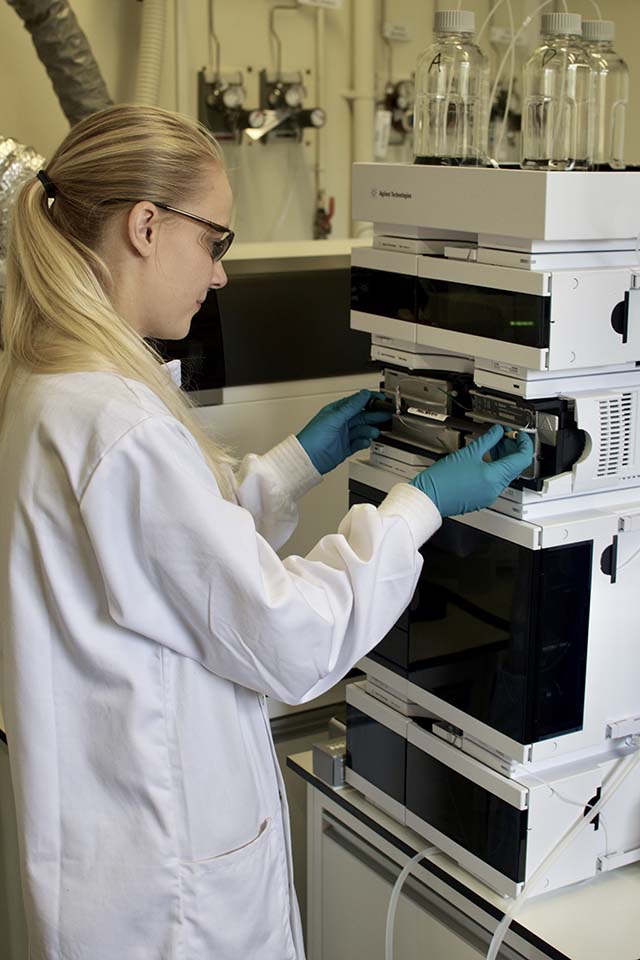
Sophia Dowell was a placement student in 2017 and is currently finishing her PhD at BGS with fieldwork in Kenya. BGS © UKRI.
Benefits to BGS
Each year, we have undergraduates with a fresh perspective keen to put into practice two years of learning at university. Whilst there is an initial investment in training each year as a host, the students’ enthusiasm and passion quickly leads to effectiveness in the workplace. The rotation every twelve months results in constant questioning and challenging of staff as to why we undertake laboratory procedures in a certain way, and occasionally leads to some innovative ways of thinking.
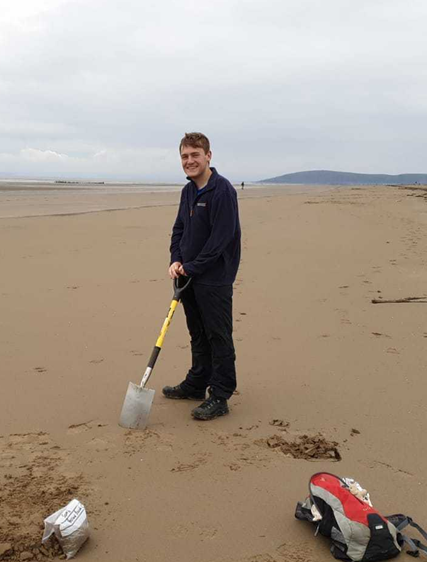
David King undertaking fieldwork during his placement in 2018 and 2019. BGS © UKRI.
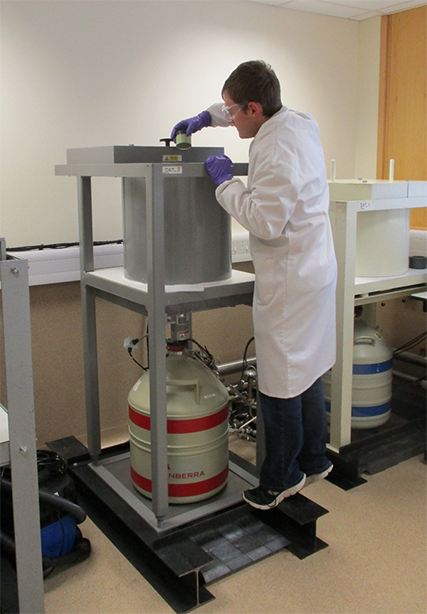
David working in the laboratory. BGS © UKRI.
The students are considered part of the wider team and are therefore given their own responsibilities, with guidance. Typically, they are operating complex laboratory instruments (with guidance) within a few months; these can include gamma spectrometers, ion chromatographs, inductively coupled plasma mass spectrometers (ICP-MS) and sometimes multiple instruments – which is not uncommon in industry. In fact, I completed a similar industrial placement myself many years ago at a pharmaceutical company, an industry in which the employment of undergraduate industrial placements is common for the operation of research equipment under the supervision of graduate or postgraduate scientists. This approach is a valuable recruitment tool across industry.
The scheme has also been a helpful recruitment tool. In 2013, Elliott Hamilton was employed as a permanent member of staff; he now oversees the interview and selection of students each year. We have also recruited past industrial placement students onto PhD programmes, with three completed PhD projects at BGS and two currently approaching completion.
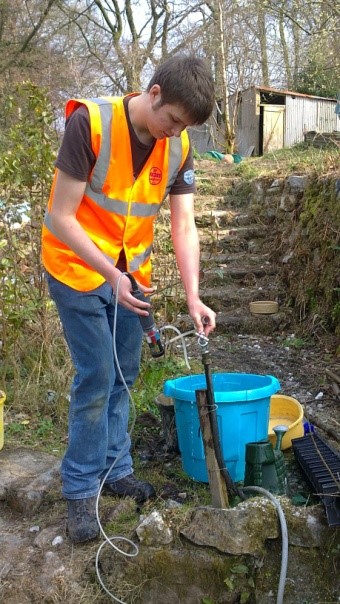
Elliott Hamilton testing groundwater during his placement in 2010 and 2011. BGS © UKRI.
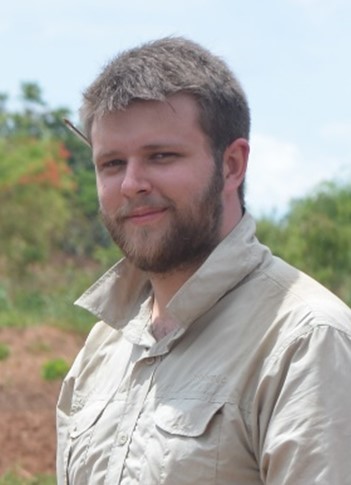
Elliott working in Zambia for BGS. BGS © UKRI.
Networking is a key benefit of the programme. Through communication between university scientists and BGS, the students learn how to cooperate, sharing ideas, data and learning, and have the opportunity to work with young people with different cultural and educational upbringings to some of our staff.
Benefits to early career scientists
The industrial placement students are given a research project aligned to the ongoing needs of the laboratory and the wider BGS strategy. In general, this will require a new laboratory capability for research or commercial purposes. This activity develops the students’ experience in scientific rigour, reasoning, planning and communication, which is reinforced through oral presentations . Communication learning culminates for the University of Surrey students at their ‘Industry Day’ when they return for their final year of study. They present their experience to the other companies involved in the industrial placement programme, typically pharmaceuticals and the chemical industry, life sciences, environmental science and materials research.
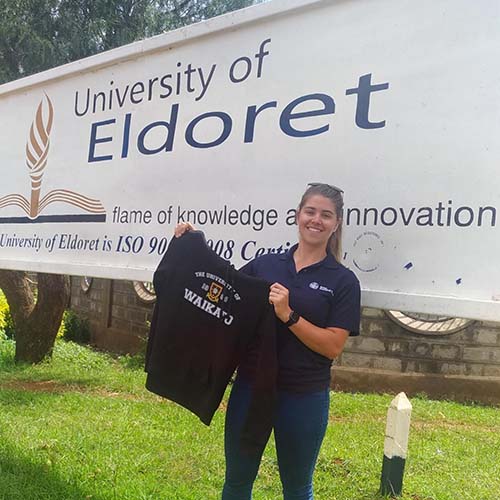
Kelsey Ferris at the University of Eldoret in Kenya. BGS © UKRI.
Student responsibilities within the laboratories range from the routine daily tasks that are essential to the functioning of the facility (and in maintaining our accredited status to ISO 17025:2017) to the operation of complex equipment. Crucially, they learn how to multi-task, respond to deadlines on varying scales and deal with pressure points through teamwork and communication. Importantly, throughout the year the students often clarify what they want to do as a career beyond graduation, with the industrial placement giving them valuable applied skills and knowledge, skills for their CV and the start of their own personal career network. Of the 36 alumni, 16 went onto further postgraduate study, with many others remaining in a science career through professions in teaching, sales or chemistry roles across a range of industrial sectors.
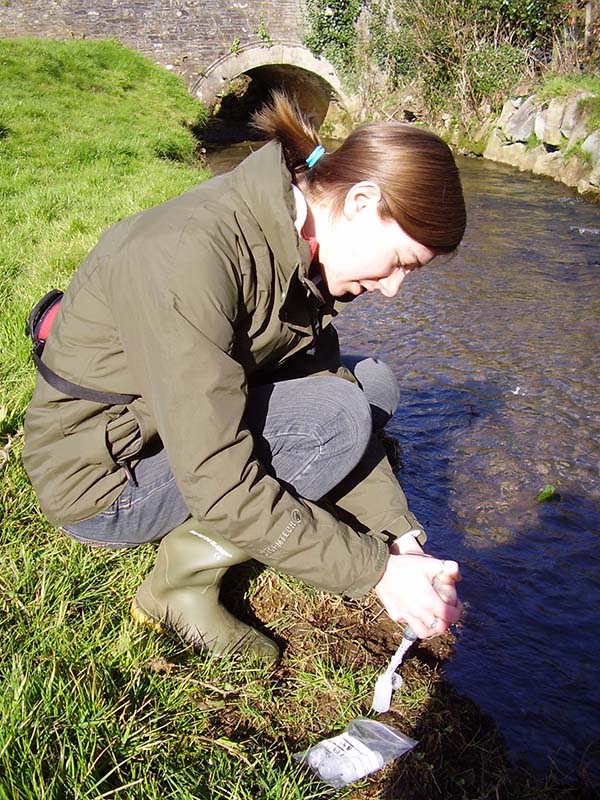
Jenny O’Reilly taking stream samples. BGS © UKRI.
The students
My industrial placement year at BGS kick-started my interest in environmental chemistry and I have continued in that field ever since. Not only did my year in the inorganic geochemistry team give me hands-on experience of using complex analytical instrumentation, but it also provided a chance to go out into the field and collect real samples. The opportunities I was given were varied and interesting, and every day provided new and exciting challenges.
My placement year then led to my return to BGS to complete a PhD in arsenic speciation in Argentina. Since then, I have remained in the chemical industry and, over the past 13 years, I have continued to develop the skills I learnt during my placement. I can’t thank Michael and the team enough for all their support and steering me into a career that I love.
“Undertaking a placement year at BGS was the best decision that I could have made with respect to my personal and career development. I developed laboratory and problem-solving skills, whilst being given the opportunity to use state-of-the-art analytical instrumentation to contribute to a range of geochemical and environmental health research questions.
A particular highlight was being part of a fieldwork team carrying out private water-supply sampling in Cornwall. Communicating with stakeholders directly impacted by the work that BGS undertakes was enlightening and helped shape my future career aspirations.
In 2013, I returned as a full-time member of the inorganic geochemistry team and embarked on a part-time PhD shortly after. I am now the ICP-MS Facility manager, overseeing a portfolio of routine and bespoke analyses for industry and academia.”
“I learnt the most during my degree (in chemistry) whilst carrying out my industrial placement year at BGS. For the first time, I was able to apply my research skills in a real-world and practical environment. With exposure to high-tech instruments and an expert team, my analytical skills as a chemist excelled and I gained experience that built my confidence and helped me to confirm what I wanted to do in the future.
My year at BGS also meant that I had a range of diverse and valuable skills to offer on completing my degree, allowing me to really stand out from the competition. Now, almost a decade later, I have a PhD in chemistry and work as a sustainability consultant for Eunomia. I still often refer to knowledge and experience that I gained at BGS, especially as clients recognise it as such a highly respectable organisation. I would highly recommend any student to apply — you won’t regret it in the future.”
“During my industrial placement within the Inorganic Geochemistry team at BGS, I was given my first flavour of independent research, getting to develop a wide range of laboratory skills, experience fieldwork and ultimately publish a scientific journal paper for the first time too! The broad array of analytical chemistry skills that I developed during the placement helped me to plan robust experiments and this has benefitted my progression towards a career in R&D. It was also during this placement that I discovered my love for radiochemistry, gaining hands-on experience in operating a liquid scintillation counter and gamma spectrometer, and I have since gone on to complete a PhD and pursue a postdoctorate position in the field of radiochemistry.
I had a fantastic experience in the inorganic geochemistry team and I would wholeheartedly recommend for any student to pursue an industrial placement year as the skills are absolutely invaluable!”
“Without a doubt, accepting the offer of a year-long industrial placement within the inorganic geochemistry team at BGS was the best decision I have made for my career. On the opposite side of the world from New Zealand and working alongside brilliant minds, I was taught to challenge my thoughts, explore new ideas and dive into the unknown.
My year at BGS involved learning an array of analytical techniques, enhancing my scientific writing skills and a field trip even further abroad to Kenya.
I have since returned to the cellular and molecular biology realm of science, but broadening my scientific tool bag to include chromatography skills and inorganic geochemistry techniques at BGS has proved invaluable for my career. If you find yourself with a similar opportunity, don’t hesitate to take the leap.”
“Some of my greatest professional development occurred during my placement year with the inorganic geochemistry team at BGS. I was given the chance to learn a variety of analytical techniques, was involved with many different projects in geochemistry and environmental health, and was even trusted to run a laboratory while other staff were on fieldwork. These unique experiences would not be possible without a placement opportunity and have helped shape my future endeavours; I returned to BGS to complete a PhD in environmental geochemical sampling methods for mercury in challenging environments. The placement year gave me a huge push in my development as a scientist and as a person, I would recommend every student to pursue the opportunity.”
“I found my placement year with the inorganic geochemistry Facility at BGS incredibly useful. I improved pre-existing skills and developed new skills, which has set me up perfectly for my final year and beyond. I was given unique opportunities to run instruments myself, be responsible for international visitors and develop new analytical methods.”
Prof Neil Ward, University of Surrey
Michael Watts at BGS provides an excellent laboratory for students undertaking work-based learning or professional training. This long-standing link with the University of Surrey is highly recognised for the professional level of training the students get, with specific on-the-job experience of quality control systems, project specific analysis of other staff at BGS and the day-to-day experience of working with experts from a variety of professions at BGS. All the students learn about research in a world where it is not just sample analysis that is important; the results are also important in relation to natural environmental and geochemical problems.
Summary
Overall, the industrial placements are an extremely valuable way of refreshing the workforce perspective and approach to wider learning and development of staff. The students have formed a valuable recruitment pool and a wider network as they develop their careers, resulting in a flexible form of workforce to respond to opportunities, which greatly enhances the employability of the students and the development of wider skills for UK scientific research. The scheme also continues to be invaluable approach to developing the supervisory and line management skills of junior staff, particularly given the diversity of personalities and levels of resilience and fragility. Overall, it has been extremely satisfying to see these young scientists evolve, develop their self-confidence and start to crystallise their hopes for the future during the course of the 12 months and beyond.
About the author
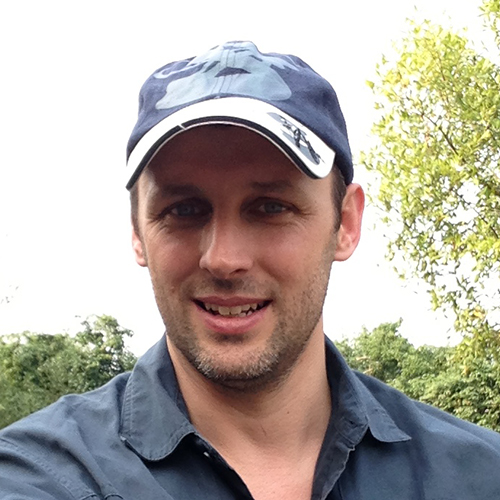
Dr Michael Watts
Head of BGS Inorganic Geochemistry
Relative topics
Latest blogs
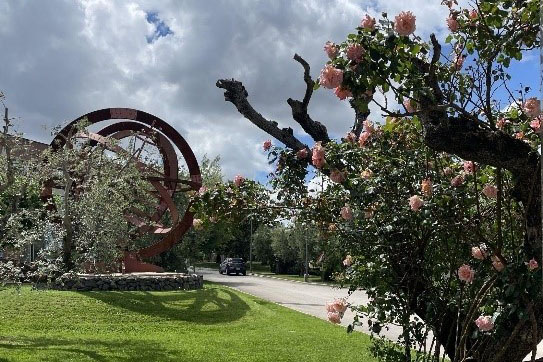
AI and Earth observation: BGS visits the European Space Agency
02/07/2025
The newest artificial intelligence for earth science: how ESA and NASA are using AI to understand our planet.
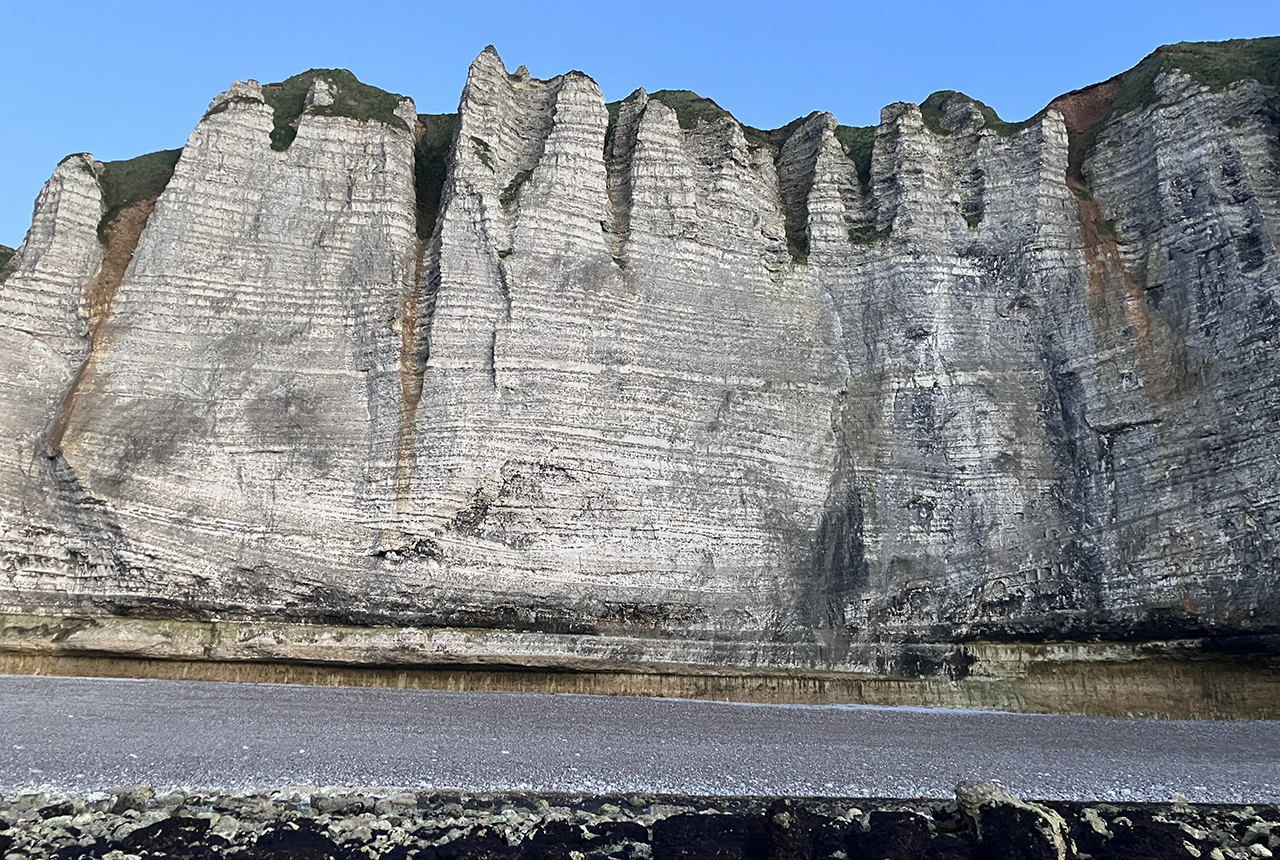
Geology sans frontières
24/04/2025
Geology doesn’t stop at international borders, so BGS is working with neighbouring geological surveys and research institutes to solve common problems with the geology they share.
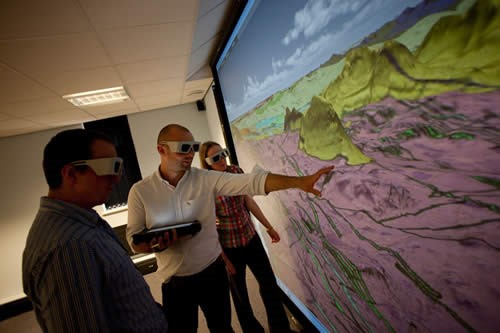
Celebrating 20 years of virtual reality innovation at BGS
08/04/2025
Twenty years after its installation, BGS Visualisation Systems lead Bruce Napier reflects on our cutting-edge virtual reality suite and looks forward to new possibilities.
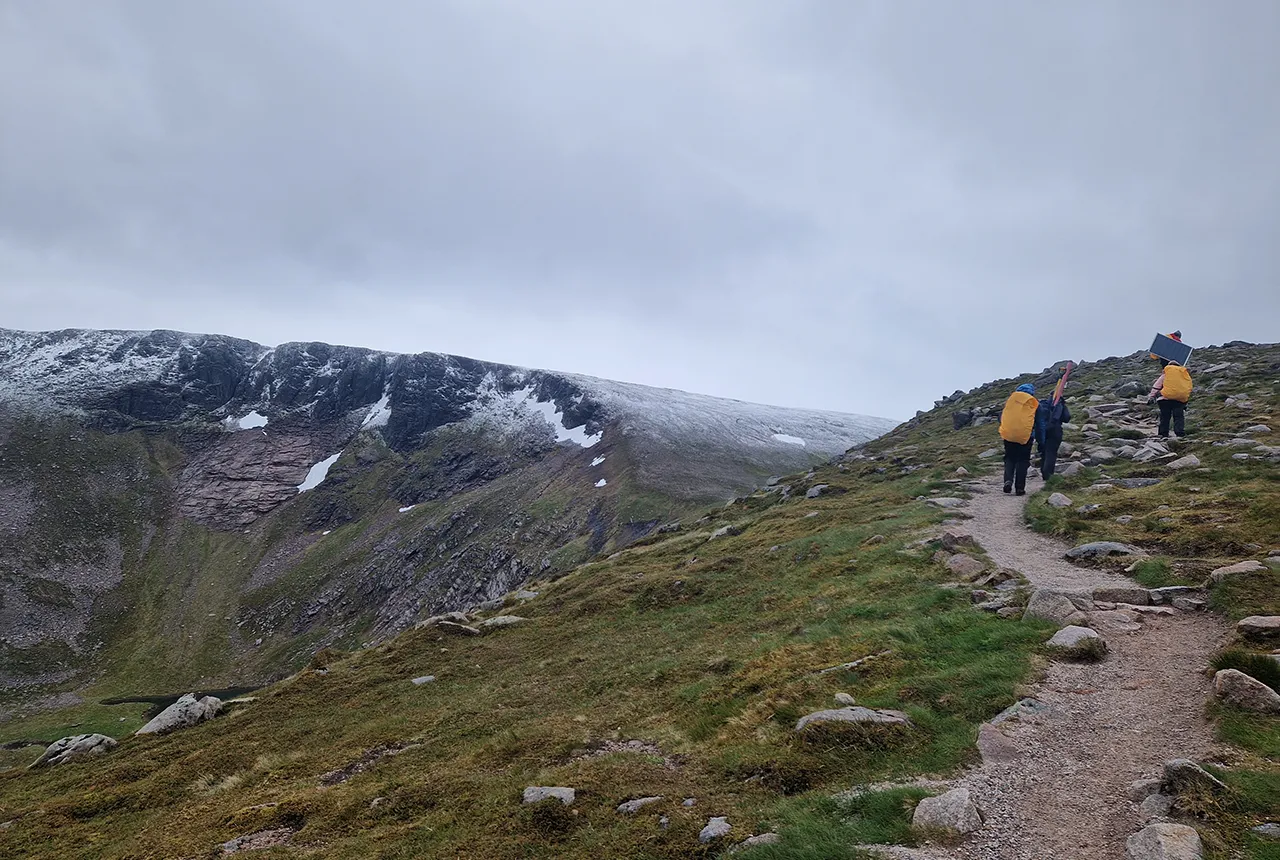
Exploring Scotland’s hidden energy potential with geology and geophysics: fieldwork in the Cairngorms
31/03/2025
BUFI student Innes Campbell discusses his research on Scotland’s radiothermal granites and how a fieldtrip with BGS helped further explore the subject.
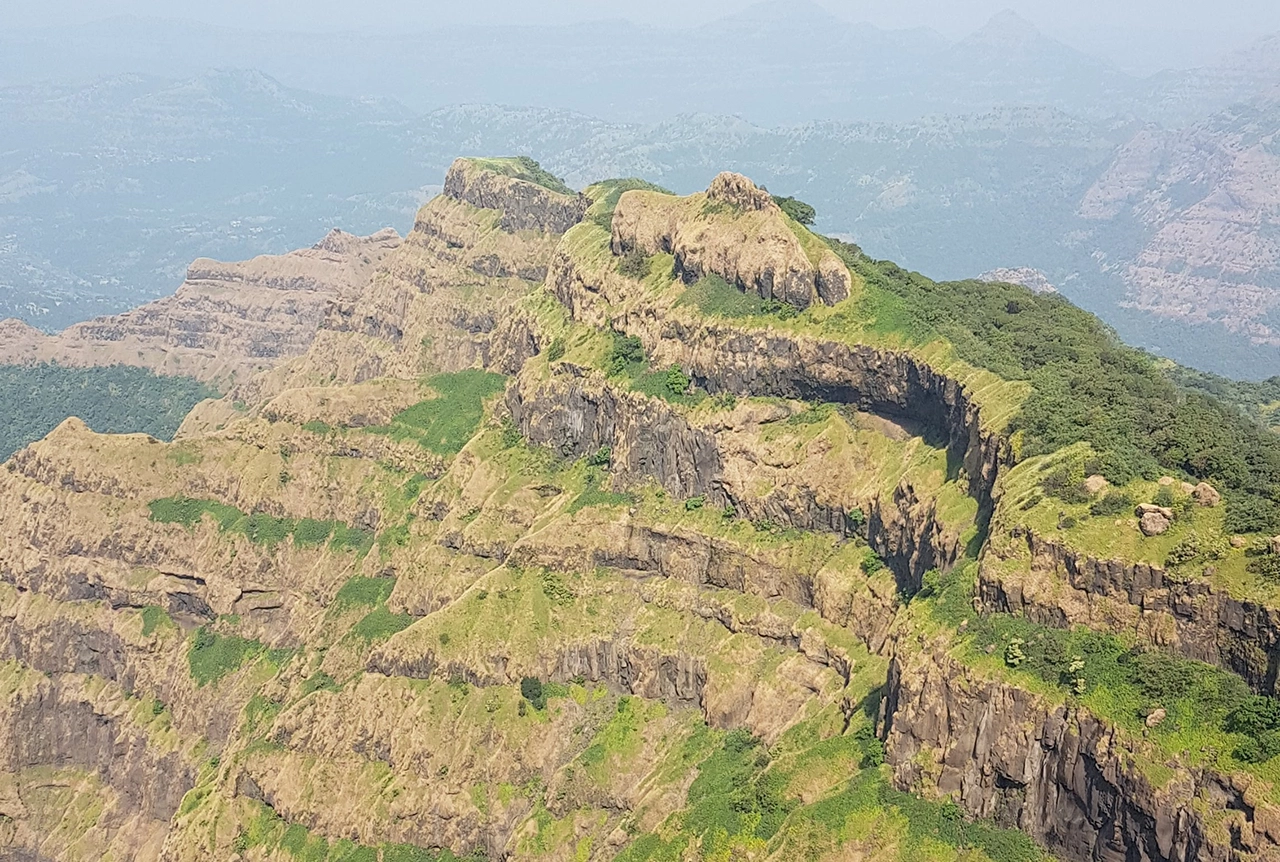
Could underground disposal of carbon dioxide help to reduce India’s emissions?
28/01/2025
BGS geologists have partnered with research institutes in India to explore the potential for carbon capture and storage, with an emphasis on storage.
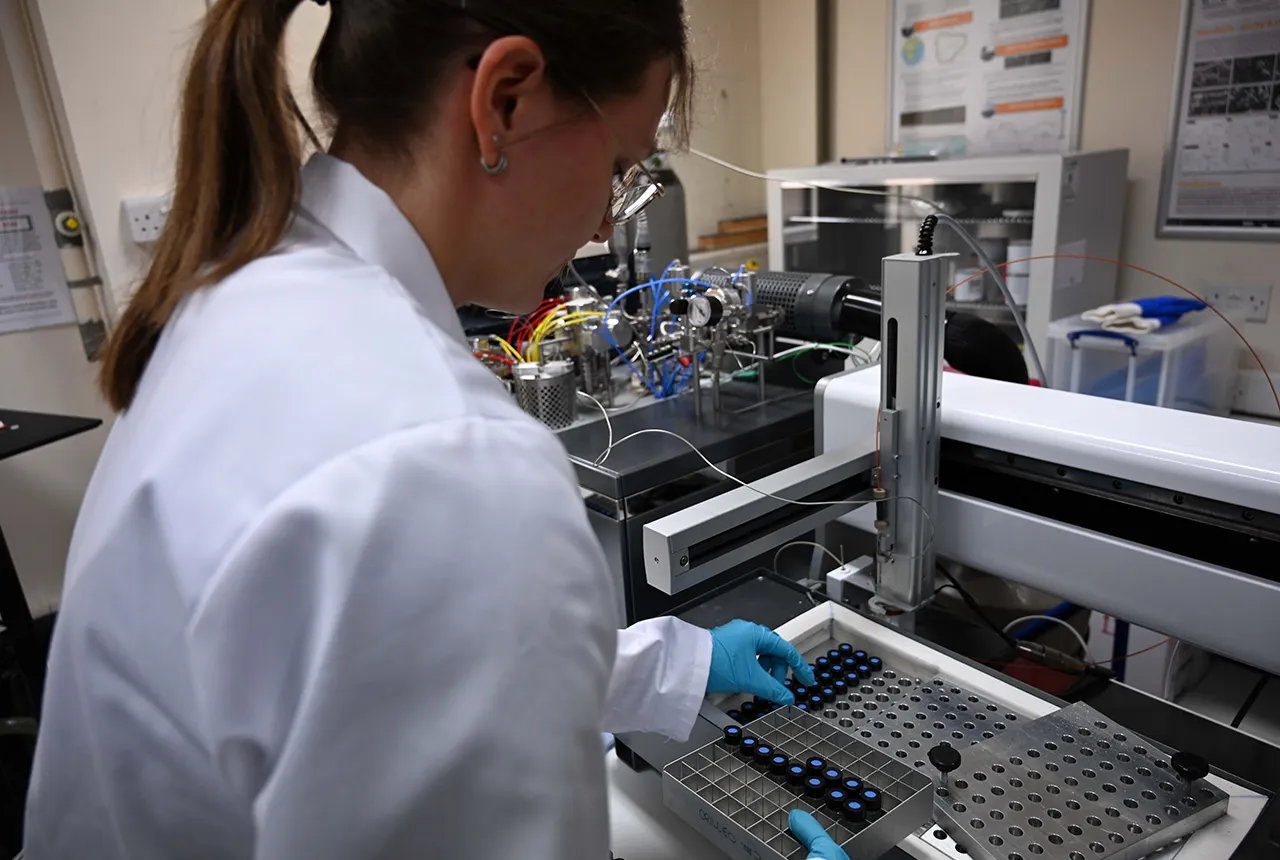
Carbon and oxygen isotope analysis of carbonates and the development of new reference materials
18/12/2024
Dr Charlotte Hipkiss and Kotryna Savickaite explore the importance of standard analysis when testing carbon and oxygen samples.
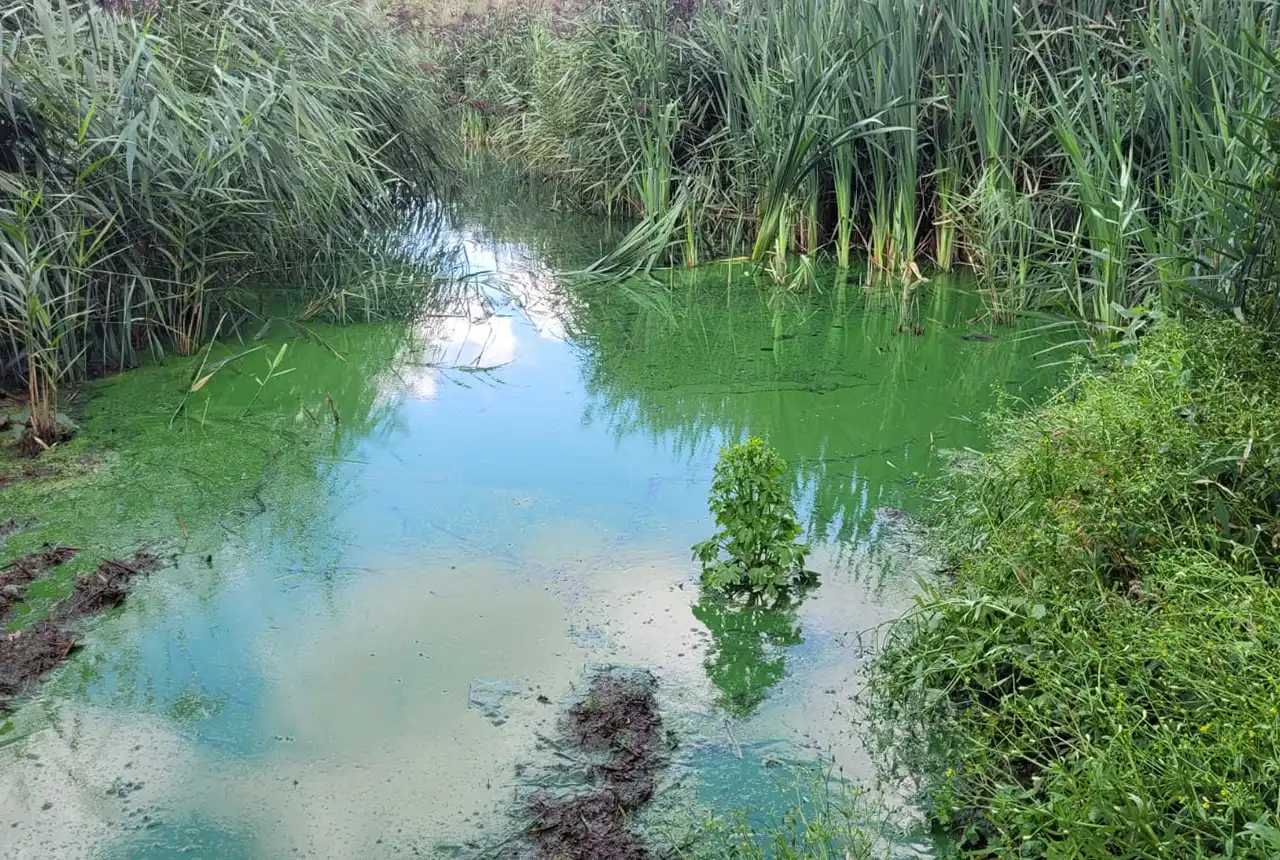
Studying oxygen isotopes in sediments from Rutland Water Nature Reserve
20/11/2024
Chris Bengt visited Rutland Water as part of a project to determine human impact and environmental change in lake sediments.
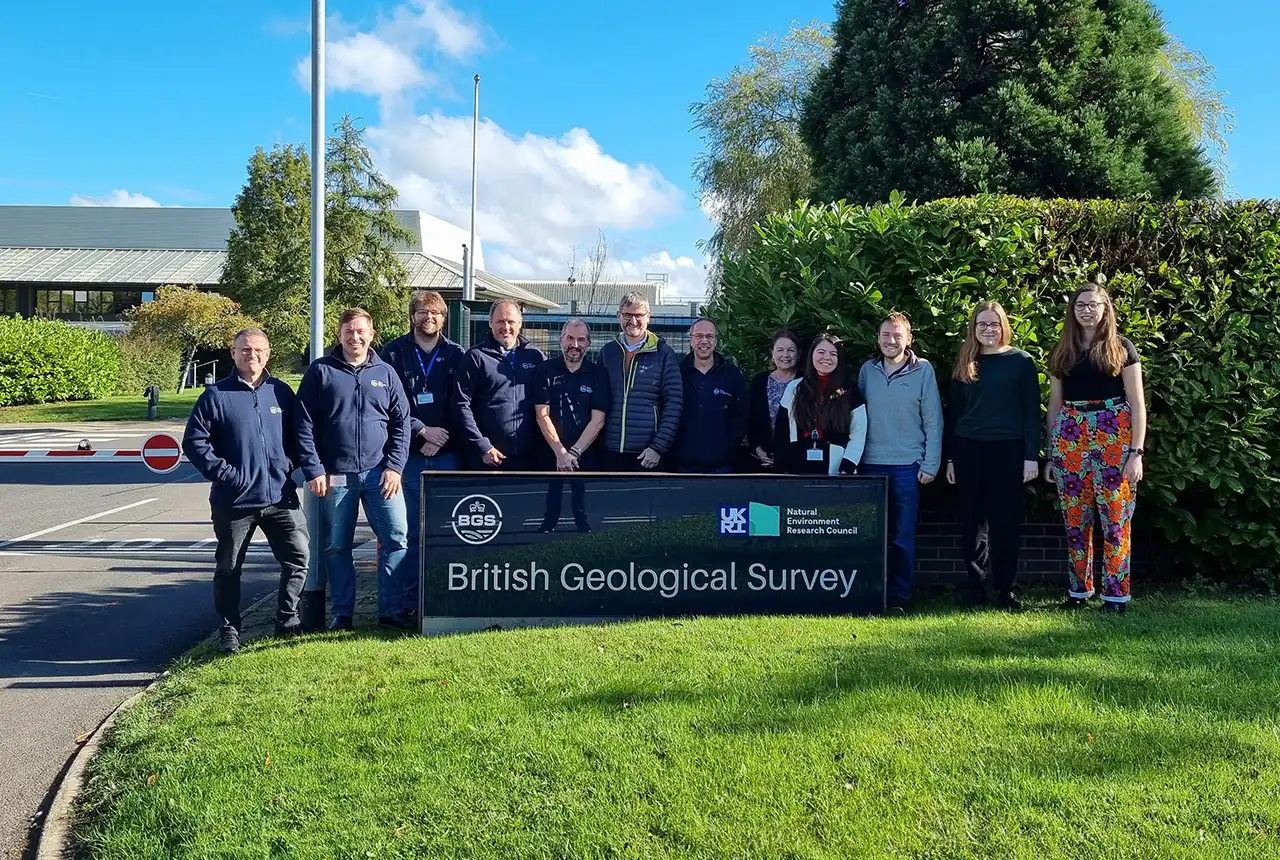
Celebrating 25 years of technical excellence at the BGS Inorganic Geochemistry Facility
08/11/2024
The ISO/IEC 17025 accreditation is evidence of technical excellence and reliability, and a mark of quality assurance.
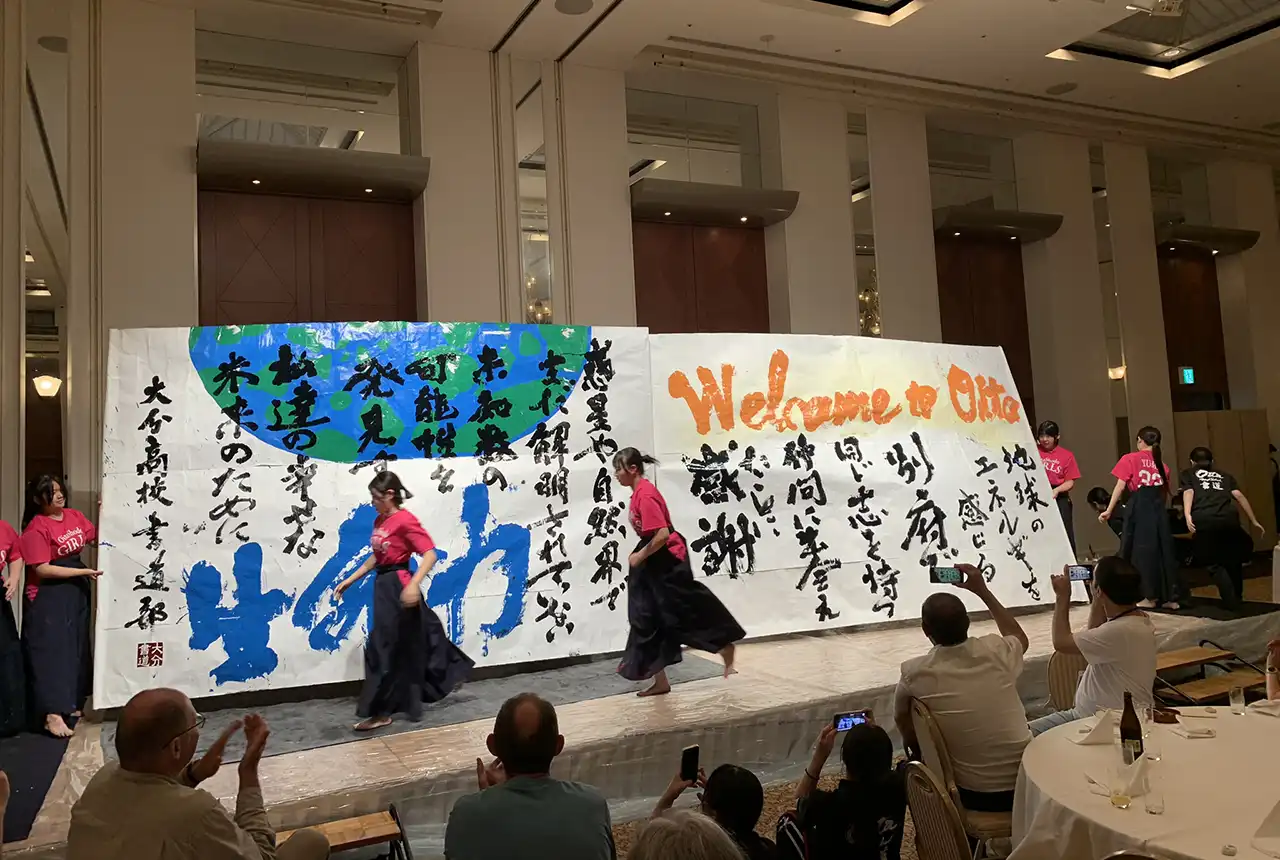
Electromagnetic geophysics in Japan: a conference experience
23/10/2024
Juliane Huebert took in the fascinating sights of Beppu, Japan, while at a geophysics conference that uses electromagnetic fields to look deep into the Earth and beyond.
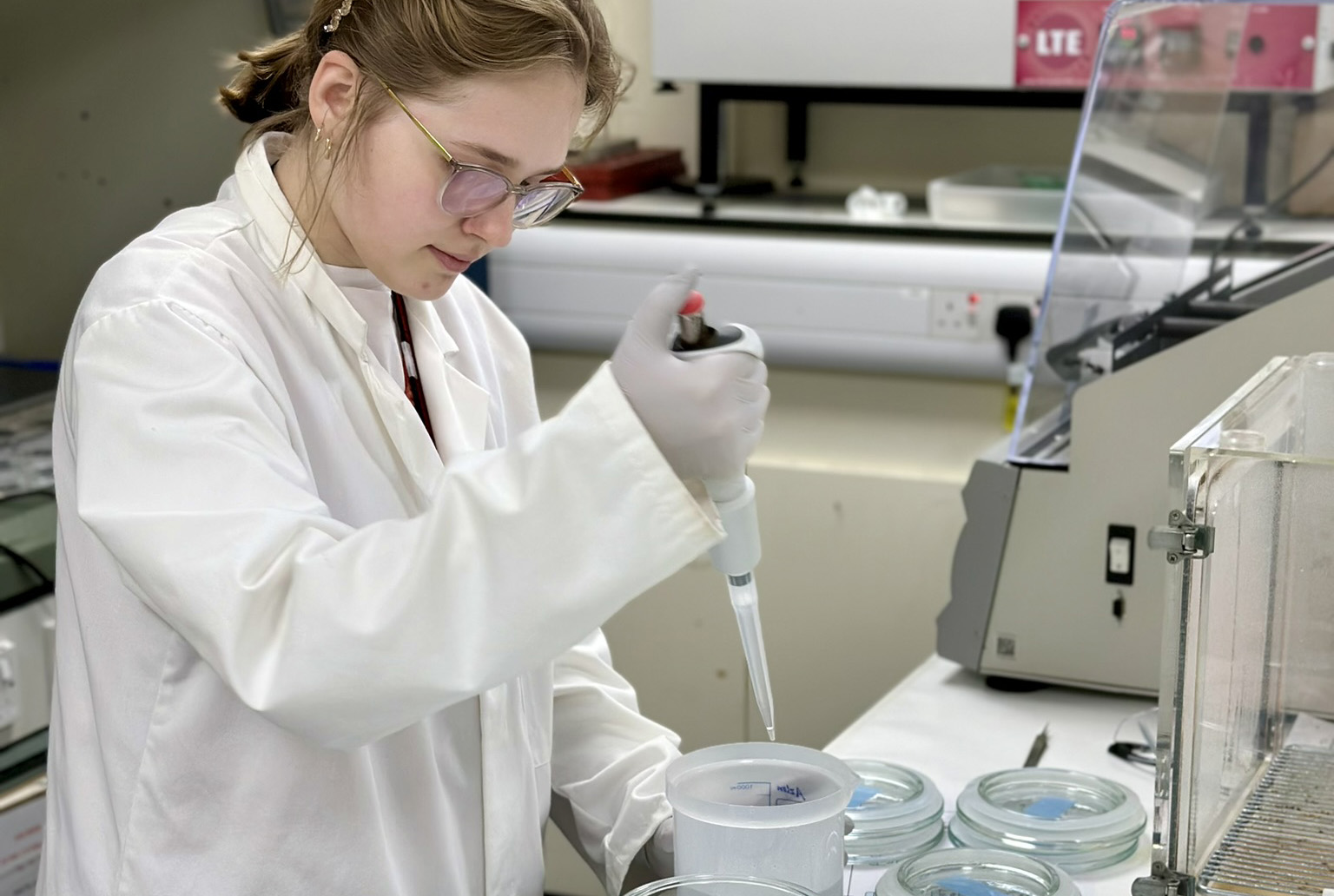
Exploring the role of stable isotope geochemistry in nuclear forensics
09/10/2024
Paulina Baranowska introduces her PhD research investigating the use of oxygen isotopes as a nuclear forensic signature.
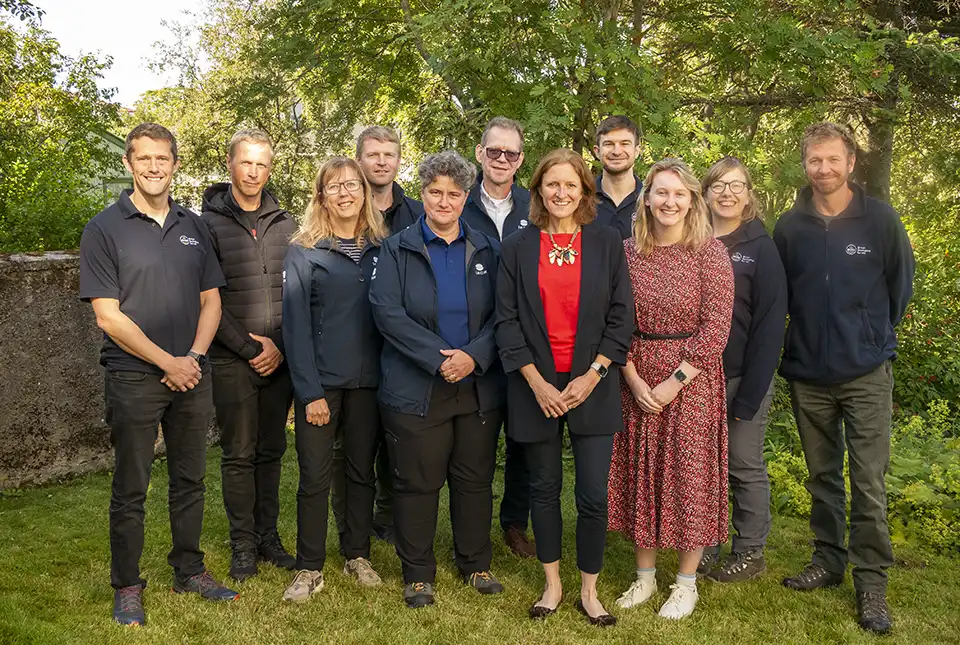
BGS collaborates with Icelandic colleagues to assess windfarm suitability
03/10/2024
Iceland’s offshore geology, geomorphology and climate present all the elements required for renewable energy resources.

Mining sand sustainably in The Gambia
17/09/2024
BGS geologists Tom Bide and Clive Mitchell travelled to The Gambia as part of our ongoing work aiming to reduce the impact of sand mining.


